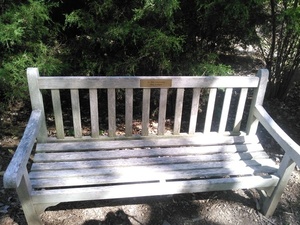William Way (1652-1725)
11 William Way
William Way. Son of Aaron Way Sr. and Joanna Sumner. Born ca 1652 at Dorchester, Mass. Baptised 13 Nov 1652.80 Married at Mass. Persis Witt, born 1655, Lynn, Essex Co., Mass., daughter of John Witt.
William Way died 1725 at Dorchester, Berkeley Co., S. C.81 Will dated 2 Aug 1715 at Dorchester, S.C.82
He joined the Salem-Village (now known as Danvers) church with his wife in 19 Nov 1689. Three years later were the famous Salem Witchcraft Trials. During the course of the accusations by Rev. Samuel Parris against several people, several of the members, including Samuel Nurse, John Tarbell (Samuel’s next door neighbor83), and Thomas Wilkins, bore witness against the accusations. They were very careful.
“Their line of action was extremely narrow. It was necessary to avoid all personalities, and every appearance of passion or excitement; to make no charge against Mr. Parris that could touch the church, as such, or reflect upon the courts, magistrates, or any others that had taken part in the prosecutions. It was necessary to avoid Continue reading
![[Pioneer '55]](http://www.okraparadisefarms.com/pictures/1955-06-30--clyattville-pioneer/20241013_134614.jpg)
![[Pearson Tribune Subscription Receipt]](http://www.okraparadisefarms.com/pictures/1947-08-30--pearson-tribune/20241013_134915.jpg)
![[Catface burning, Turpentine guide, Nail that held the cup, the loblolly pine tree]](http://www.okraparadisefarms.com/pictures/2023-12-22--afterburn/many.jpg)
![[1917 and 2023 maps compared]](http://www.okraparadisefarms.com/pictures/1917--lowndes-co-ga-soil-map/many.jpg)
![[1917--hambrick-road-loco-soil-map]](http://www.okraparadisefarms.com/pictures/1917--lowndes-co-ga-soil-map/1917--hambrick-road-loco-soil-map.jpg)
![[Petition and chart]](http://www.okraparadisefarms.com/pictures/1692-10-18--petition-osgood/many.jpg)






